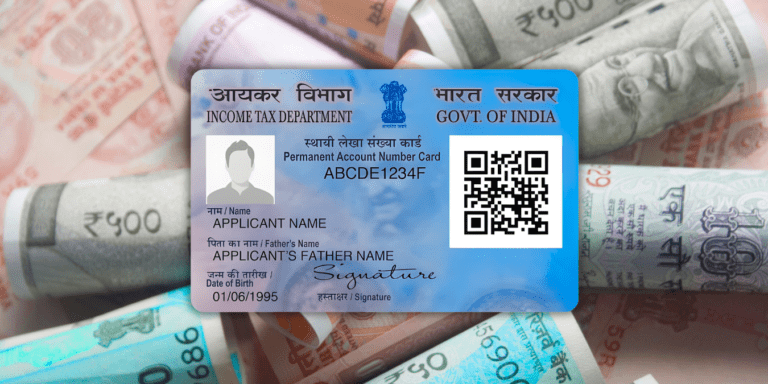
“Wondering if GST on home loan processing fees is tax-deductible? Learn how Section 80C & 24 apply, latest 2024 tax rules, and legal ways to save. Discover hidden charges, ITC eligibility, and expert tips to maximize deductions. Read now to optimize your home loan tax benefits!”
When purchasing a home in India, home loans are a popular financing option for millions of individuals. However, the costs associated with securing a home loan—such as processing fees, legal charges, and GST (Goods and Services Tax)—often raise questions about tax benefits. One of the most common queries among Indian homebuyers and taxpayers is: Can GST on home loan processing fees be claimed as a tax deduction? In this detailed blog post, we’ll explore the latest data, tax laws, and practical insights to answer this question comprehensively.
Understanding GST on Home Loan Processing Fees
Before diving into the tax deduction aspect, let’s clarify what GST on home loan processing fees entails. In India, GST was introduced on July 1, 2017, replacing multiple indirect taxes like service tax. While the principal amount and interest on a home loan are exempt from GST, the associated services—such as processing fees, documentation charges, and legal fees—are taxable. These services, provided by banks and financial institutions, attract a GST rate of 18%, as per the current taxation structure in 2025.
For example:
- If a bank charges a processing fee of ₹10,000 for a ₹50 lakh home loan, the GST applicable would be ₹1,800 (18% of ₹10,000).
- The total cost to the borrower becomes ₹11,800 (₹10,000 + ₹1,800).
This additional GST component often leads borrowers to wonder if they can offset it through tax deductions under the Income Tax Act, 1961. To answer this, we need to examine the relevant sections of the Act and the nature of GST as a tax.
Tax Deductions on Home Loans: What’s Eligible?
The Income Tax Act offers several provisions for claiming deductions on home loan-related expenses. These benefits are designed to encourage homeownership and reduce the tax burden on individuals. Let’s break down the key sections:
1. Section 24(b): Deduction on Home Loan Interest
Under Section 24(b), taxpayers can claim a deduction on the interest paid on a home loan for a self-occupied property, up to a maximum of ₹2 lakh per year. For let-out properties, there’s no upper limit on the interest deduction. However, this section applies solely to the interest component and does not cover processing fees or GST.
2. Section 80C: Deduction on Principal Repayment
Section 80C allows a deduction of up to ₹1.5 lakh per year on the principal repayment of a home loan, provided the property is acquired or constructed within five years. Additionally, stamp duty and registration fees paid during property purchase can also be claimed under this section, but only in the year they are incurred. Unfortunately, processing fees and GST do not fall under this category.
3. Section 80EE and 80EEA: Additional Interest Deductions
- Section 80EE: Offers an additional deduction of up to ₹50,000 on home loan interest for first-time homebuyers, subject to certain conditions (e.g., loan amount not exceeding ₹35 lakh and property value up to ₹50 lakh).
- Section 80EEA: Extends an additional ₹1.5 lakh deduction on interest for affordable housing loans sanctioned between April 1, 2019, and March 31, 2022 (currently expired unless extended in 2025).
These sections, too, focus exclusively on interest and do not include processing fees or GST.
Can GST on Processing Fees Be Claimed as a Tax Deduction?
The short answer is no, GST paid on home loan processing fees cannot be claimed as a tax deduction under the Income Tax Act for individual taxpayers. Here’s why:
1. Nature of GST
GST is an indirect tax levied on the supply of goods and services. It is collected by banks or financial institutions and remitted to the government. Unlike income tax, which is a direct tax on an individual’s income, GST is a consumption-based tax. The Income Tax Act does not provide any mechanism for individuals to claim indirect taxes like GST as deductions, except in specific business-related scenarios (more on this later).
2. Processing Fees Are Not Covered
Home loan processing fees are administrative charges levied by lenders to cover the cost of processing your loan application. While these fees are subject to GST, they are not classified as interest or principal repayment—the two components eligible for tax deductions under Sections 24(b) and 80C. The Act does not recognize processing fees (or the GST on them) as deductible expenses for salaried individuals or homeowners.
3. No Input Tax Credit (ITC) for Individuals
Under the GST regime, businesses registered under GST can claim Input Tax Credit (ITC) on the GST paid for goods and services used in their operations. For example, a real estate developer can claim ITC on GST paid for construction materials. However, individual homebuyers or borrowers are not GST-registered entities and cannot claim ITC on the GST paid on processing fees. This benefit is exclusive to businesses, not personal taxpayers.
Exception: Self-Employed Professionals and Businesses
There’s a silver lining for self-employed professionals or business owners who take a home loan for a property used for commercial purposes (e.g., an office or rental property). In such cases:
- If the property is used for business purposes and the individual is GST-registered, the GST paid on processing fees can be claimed as ITC, provided it aligns with the business’s taxable supplies.
- Additionally, under Section 37 of the Income Tax Act, business expenses that are wholly and exclusively incurred for the purpose of the business can be deducted from taxable income. If the processing fees (including GST) are treated as a business expense, they may reduce taxable profits—but this applies only to the business’s income tax computation, not as a direct deduction for individuals.
For example:
A self-employed architect takes a ₹50 lakh home loan to purchase an office space. The bank charges a ₹10,000 processing fee + ₹1,800 GST. If the architect is GST-registered, they can claim the ₹1,800 as ITC and offset it against their GST liability. Additionally, the ₹11,800 (fee + GST) could be claimed as a business expense under Section 37, lowering their taxable income.
This exception does not apply to salaried individuals or homeowners using the property for residential purposes.
Latest Updates in 2025: Any Changes on the Horizon?
As of April 3, 2025, there have been no amendments to the Income Tax Act or GST laws allowing individuals to claim GST on home loan processing fees as a tax deduction. However, the Indian government periodically revises tax policies to support homebuyers. For instance:
- In the 2023 Union Budget, the deduction limit under Section 80C remained ₹1.5 lakh, and no new provisions were introduced for processing fees or GST.
- The GST Council, in its meetings up to December 2024, has not reduced the 18% GST rate on financial services, including loan processing fees.
Rumors of a potential GST rate rationalization or extension of Section 80EEA benefits persist ahead of the 2025 Union Budget (expected in July). Homebuyers should stay tuned for updates, as any relaxation in GST rates or new tax incentives could indirectly reduce borrowing costs.
How Does GST on Processing Fees Impact Home Loan Costs?
While GST on processing fees isn’t deductible, it’s worth understanding its financial impact. Here’s a quick calculation:
| Loan Amount | Processing Fee (1%) | GST (18%) | Total Cost |
| ₹25 lakh | ₹25,000 | ₹4,500 | ₹29,500 |
| ₹50 lakh | ₹50,000 | ₹9,000 | ₹59,000 |
| ₹1 crore | ₹1,00,000 | ₹18,000 | ₹1,18,000 |
For a ₹50 lakh loan, the GST component (₹9,000) is a small fraction of the total interest paid over the loan tenure (often lakhs of rupees). However, it’s an upfront cost that adds to the initial expense of securing a home loan.
Tips to Minimize GST Impact
Since GST on processing fees isn’t deductible, here are practical ways to reduce its burden:
- Negotiate Processing Fees: Some lenders waive or reduce fees during promotional offers, lowering the GST payable.
- Compare Lenders: Banks like SBI, HDFC, and NBFCs often have varying fee structures—choose one with lower charges.
- Opt for Government Schemes: Loans under PMAY (Pradhan Mantri Awas Yojana) may come with subsidized fees, reducing GST liability.
Common Myths About GST and Home Loan Tax Deductions
Let’s debunk some misconceptions:
- Myth: GST on processing fees can be claimed under Section 80C.
Fact: Section 80C covers principal repayment, stamp duty, and registration—not processing fees or GST. - Myth: GST paid on home loans reduces taxable income.
Fact: Only interest and principal components qualify for deductions, not GST. - Myth: Individuals can claim ITC like businesses.
Fact: ITC is exclusive to GST-registered entities, not individual borrowers.
Why Can’t GST Be Deductible? A Policy Perspective
From a policy standpoint, allowing GST on processing fees as a tax deduction for individuals could complicate tax administration. GST is designed to be a pass-through tax, with businesses claiming ITC to avoid cascading effects. Extending this benefit to personal taxpayers would blur the lines between direct and indirect taxation, potentially leading to revenue losses for the government. Instead, tax benefits under Sections 24(b), 80C, and 80EE focus on incentivizing homeownership through interest and principal relief.
Practical Takeaways for Indian Homebuyers
Here’s what you need to know as of April 2025:
- GST on home loan processing fees is not deductible for salaried individuals or homeowners using the property for personal purposes.
- Self-employed professionals or businesses may claim ITC or treat it as a business expense, subject to GST registration and compliance.
- Focus on maximizing deductions under Sections 24(b) and 80C to offset your tax liability effectively.
- Stay updated on Budget 2025 announcements for potential relief on GST rates or new home loan incentives.
GST Fees Be Claimed as a Tax Deduction
While GST on home loan processing fees adds a marginal cost to borrowing, it cannot be claimed as a tax deduction under current Indian tax laws for individual taxpayers. The Income Tax Act prioritizes deductions on interest and principal repayment, leaving processing fees and GST outside its purview. For self-employed individuals, leveraging ITC or business expense deductions offers a workaround, but this doesn’t apply to most homebuyers.
-

8th Pay Commission Breaking: 5 Promotions, OPS Back, CGHS ₹20K – What Staff Bodies Want Now
-

Thousands of Widows and Disabled Pensioners Now Eligible for Free Treatment — What Changed Under PM-JAY?
-

Saudi Arabia Bans Poultry & Egg Imports From 40 Countries — Is India on the List?
-

RBI Approves SBI Mutual Fund’s 9.99% Stake in Bandhan Bank —And Why It’s Not a Coincidence





























